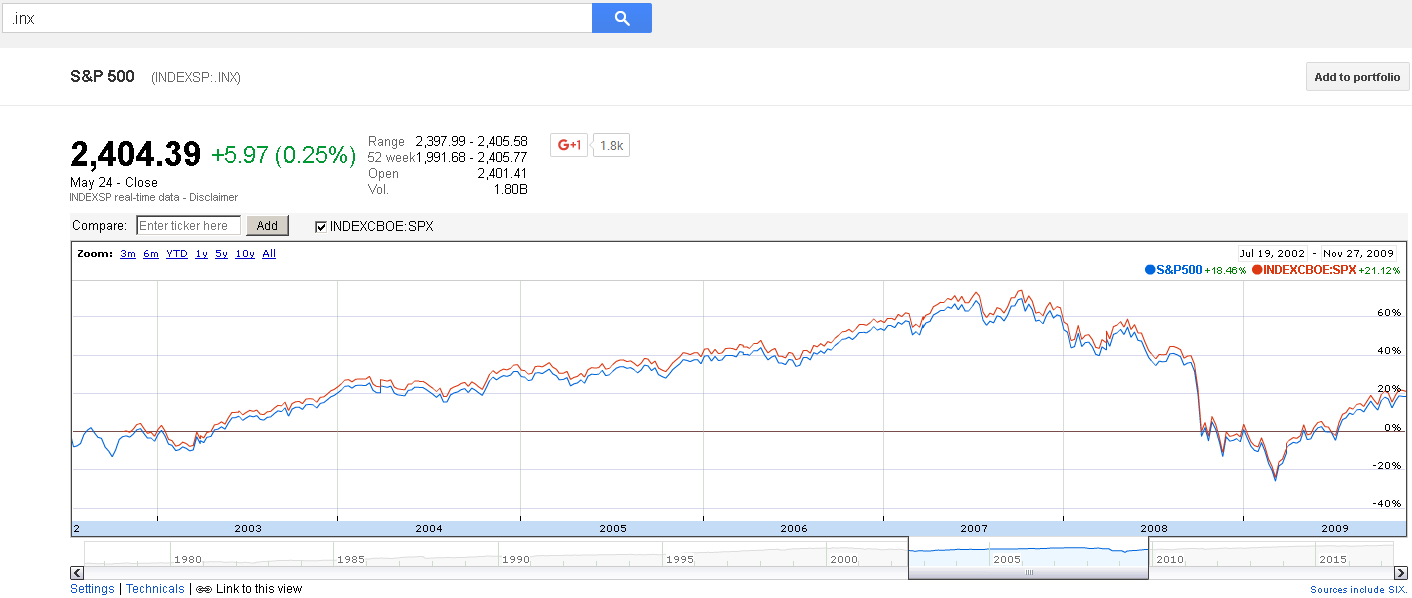I've been successful at downloading stock data from Google Finance, like so:
import pandas as pd
from pandas_datareader import data as web
import datetime
start = datetime.datetime(2016,1,1)
end = datetime.date.today()
apple = web.DataReader('aapl', 'google', start, end)
I thought I'd be able to use the same framework for index data. But this doesn't work:
spx = web.DataReader('INDEXSP', 'google', start, end)
RemoteDataError: Unable to read URL: http://www.google.com/finance/historical
Does Google not support this for indices?
Or do I need a different protocol?

